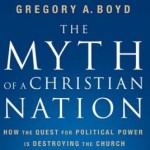We run our website the way we wished the whole internet worked: we provide high quality original content with no ads. We are funded solely by your direct support. Please consider supporting this project.
Is homosexual love without homoerotic behavior okay for a Christian?
Question: You may find this to be an odd question, but is it possible for two Christians of the same gender to remain a couple if they do not engage in sex? My partner and I love each other but our study of Scripture convinces us that having sex is wrong. Now, sex was never a huge part of our relationship anyway, so we’ve committed to abstaining. But we still want to do life together. I can’t imagine life without my partner. Do you think God is okay with this arrangement?
Answer: Let me first say I greatly admire you and your partner for having the openness and courage to let God’s Word convict you on something that undoubtedly introduces a good deal of sacrifice into your life. You are to be commended.
Now, your question is not at all an odd one. It’s a very good one. I wish more people asked it. I’ve found that a lot of gay people assume the Bible’s teaching that homosexual behavior is sin condemns them to a life of solitude, devoid of love. It does not.
While I would advice you to not refer to yourselves as a “couple” any longer (this is the language of romance, not friendship), there is nothing in the Bible that suggests two people of the same gender can’t share a love for one another that is as profound as a love between a man and a woman. David and Jonathan had this kind of affection for one another. At one point Scripture says: “So Jonathan made a covenant with the house of David, saying, ‘May the LORD call David’s enemies to account.’ And Jonathan had David reaffirm his oath out of love for him, because he loved him as he loved himself” (I Sam 20:16-17).
Then, in 2 Samuel David says to Jonathan,
I grieve for you, Jonathan my brother;
you were very dear to me.
Your love for me was wonderful,
more wonderful than that of women (2 Sam. 1:26).
So it seems like two people of the same gender can share a deep, godly, profound love for one another. The Bible is against homoerotic behavior, but not against same gender love itself.
I have advised several other gay couples along these lines. They obviously have to struggle with sexual temptation, but the ones I know have found the struggle worth the reward of continuing to share life with someone they love profoundly.
Category: Q&A
Tags: Christian Life, Q&A, Sexuality, Sin
Topics: Ethical, Cultural and Political Issues, Relationships, Sin
Related Reading

Why do you espouse Open Theism?
Open Theism refers to the belief that God created a world in which possibilities are real. It contrasts with Classical Theism which holds that all the facts of world history are eternally settled, either by God willing them so (as in Calvinism) or simply in God’s knowledge (as in Arminianism). Open Theists believe God created…

What is the warfare worldview?
The warfare worldview is based on the conviction that our world is engaged in a cosmic war between a myriad of agents, both human and angelic, that have aligned themselves with either God or Satan. This is the view that is presupposed throughout the entire Bible, and it’s especially evident in the New Testament. For…

What is the significance of 1 Samuel 13:13–14?
Because of Saul’s rebellion, Samuel tells him, “The Lord would have established your kingdom over Israel forever but now your kingdom will not continue.” The biblical narrative depicting God’s dealings with Saul up to this point is predicated on the assumption that God intended to establish Saul’s descendants as the permanent heir to the throne…

Quotes to Chew On: Confronting Non-Christians
“When Christians confront people on the basis of presuppositions not shared by the people they confront, they come across as rude (hence unloving, I Cor. 13:4-5) and usually render the gospel less credible to the people they confront. What is not generally communicated to the people being evangelized is the one thing we are called…

Seven Lies
hobvias sudoneighm via Compfight Stephen Mattson has contributed for Relevant Magazine, Sojourners (Sojo.net) Redletterchristians.org, and studied Youth Ministry at the Moody Bible Institute. He is now on staff at the University of Northwestern St. Paul, Minn. Follow him on Twitter @mikta. Stephen recently published an article in Sojourners titled Seven Lies About Christianity — Which Christians Believe that we really…

What is the significance of Genesis 6:5–6?
Seeing the wickedness of the whole human race which preceded the great flood, the Bible says, “The Lord was sorry that he made humankind on the earth, and it grieved him to his heart.” If everything about world history was exhaustively settled and known by God as such before he created the world, God had…
